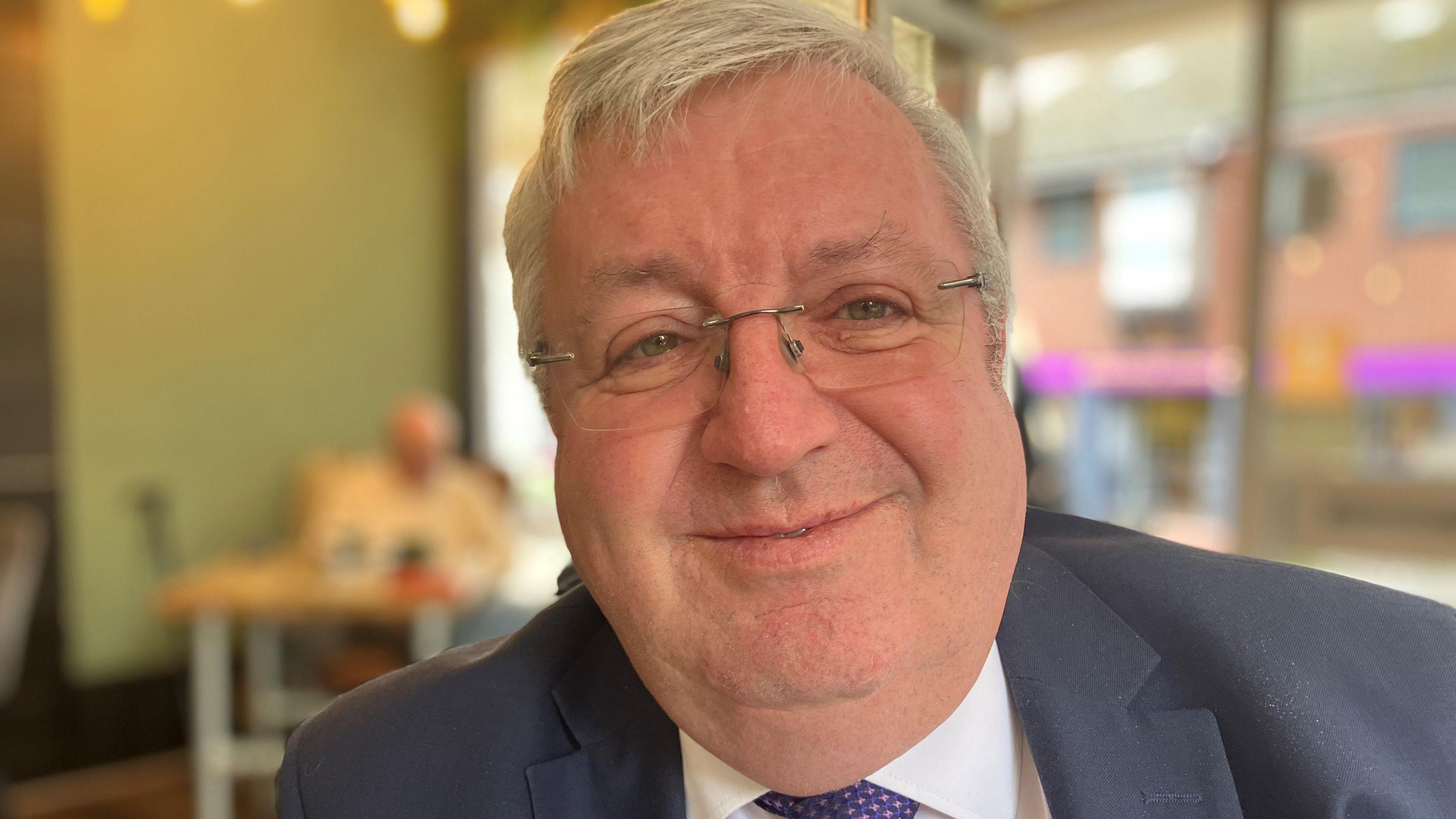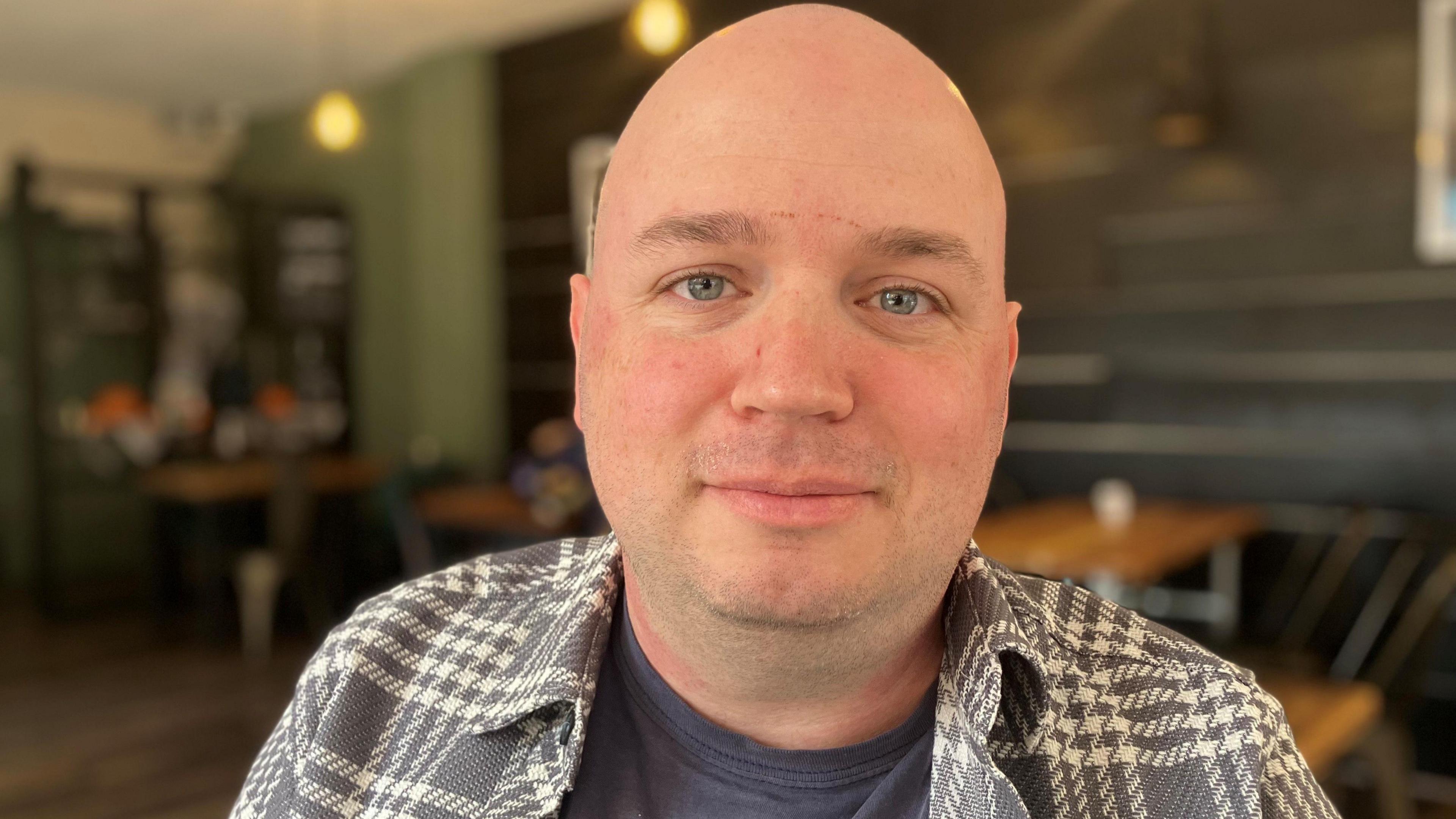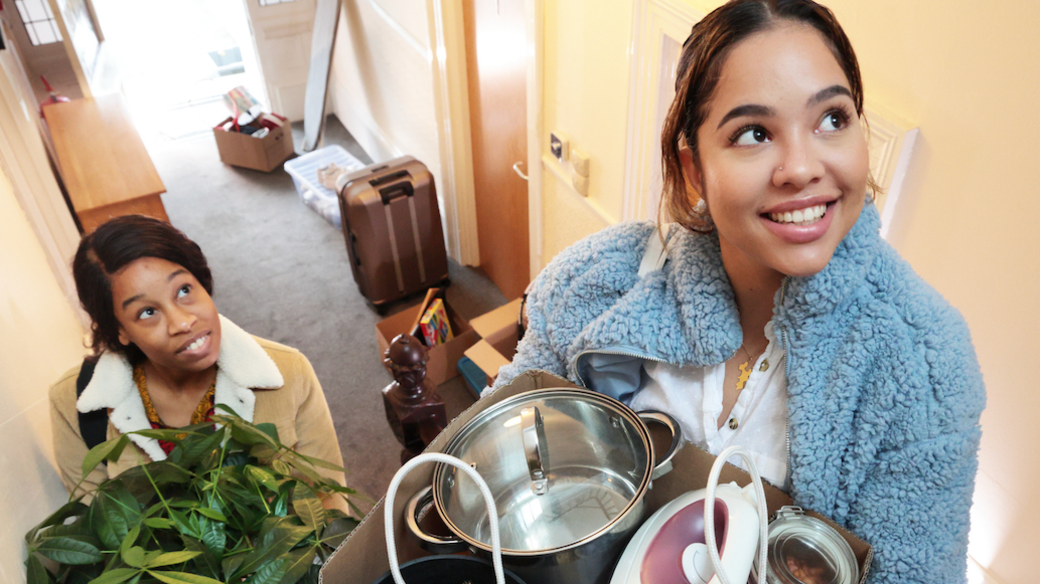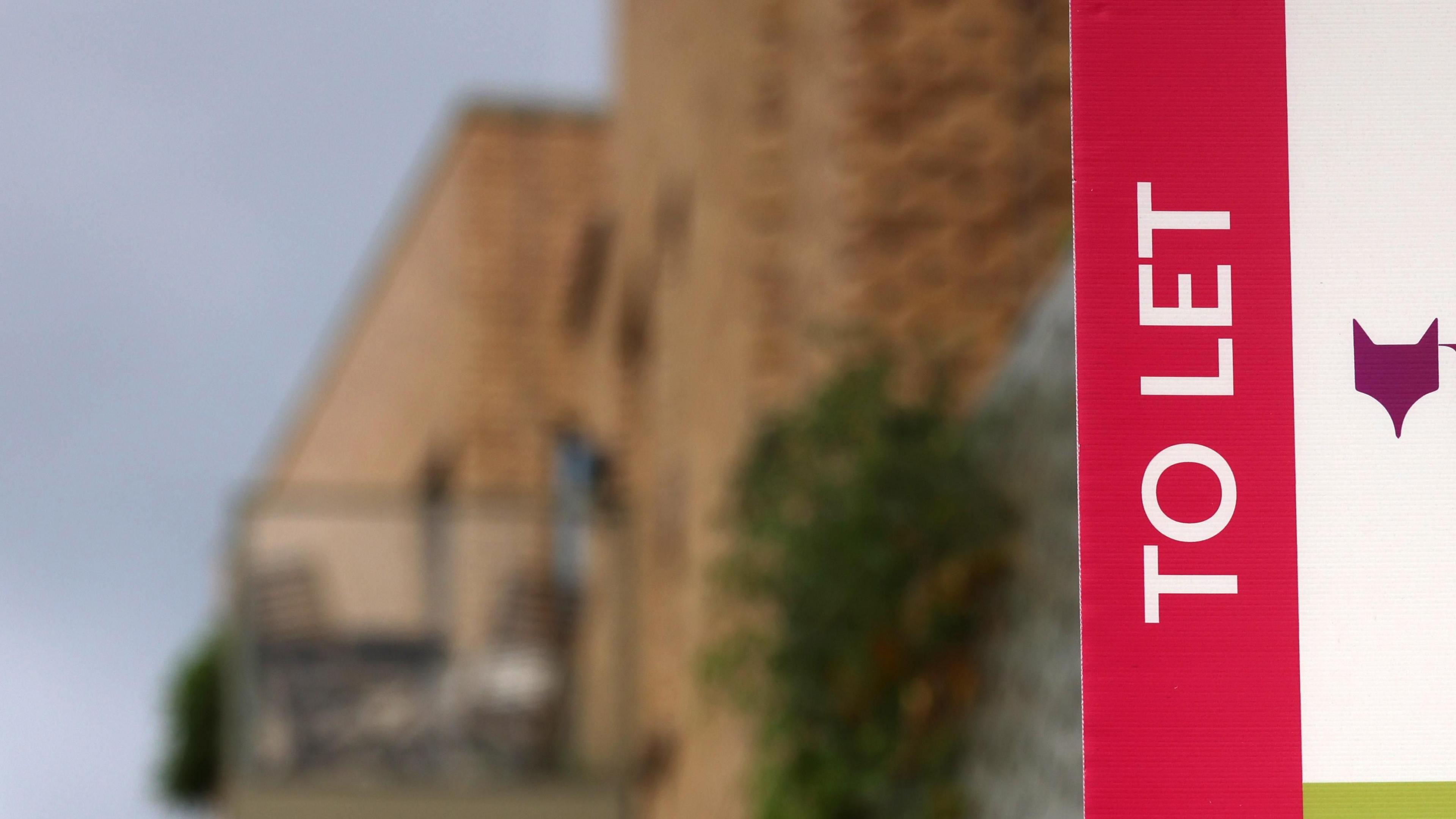Landlord says Greens' abolition policy 'has merits'

John Kane, who rents out properties in the Midlands, said the Green Party's plan to reduce the number of private landlords "had a lot of merits"
- Published
A landlord has said the Green Party's policy to phase out private letting has "a lot of merits" but would not be achievable for "a very long time".
The party passed a motion at its conference in October which made the "effective abolition of private landlordism" official policy, along with the building of more council houses.
The motion's co-sponsor Alex Mace, Green councillor on Worcester City Council, said the aim was not to abolish all landlords but that it would drastically reduce the proportion of privately rented homes.
John Kane, who has a portfolio of properties in Redditch and other parts of the Midlands, said he was "not yet" convinced by the policy.
During a discussion between the two on BBC Politics Midlands, Mr Kane said: "I think the policy has a lot of merits and I think it would be an ideal world for people to have their own property.
"I think it's going to be a very long time before we're in that position and there's going to be a need for private landlords for some time yet."
Mace, who represents the St Stephen ward, said part of the motivation behind the policy was to "massively increase" the availability of council housing.
This would be done through a number of steps, he said, including scrapping the right to buy social housing, ending buy-to-let mortgages and making funding available for councils to purchase existing homes.

Councillor Alex Mace, of Worcester City Council, co-sponsored the motion at the Green Party conference
Asked by Mr Kane where the councils would get the money, the councillor said it would be via the "same places landlords have been getting it", including borrowing and rental income.
"Rather than going to landlords and being paid back in tax, the entire rent goes back to the council," he added.
In England, 19% of all households live in privately rented properties, according to the latest government figures, making it the second largest type of housing, while in Wales the figure was 17%.
Mr Kane said he housed a "few dozen people" in Redditch and questioned what it would mean for both him and his tenants.
"Private landlords are not all Rachman-type, external companies," he added. "A typical landlord runs three or four properties – it's their pension."
Mace said if Mr Kane sold the homes, the council would have the right to buy them and the tenants could remain.
He said if the tenants wanted to go on the waiting list for council homes, they should be waiting for "a lot less time" because more homes would be available.
"The policy isn't intending to deprive landlords of the investment they have made," Mace said. "When they sell the houses, they will still get their money back."
He told Mr Kane that, should the Greens win the general election in 2029, it would "take a number of parliaments" before the party reduced the number of private landlords to the level it wants.
Politics Midlands is on BBC One in the region from 10:00 BST on Sunday, and available afterwards on BBC iPlayer
Get in touch
Tell us which stories we should cover in Hereford & Worcester
Follow BBC Hereford & Worcester on BBC Sounds, Facebook, external, X, external and Instagram, external.
- Published13 November

- Published27 October

- Published6 October
